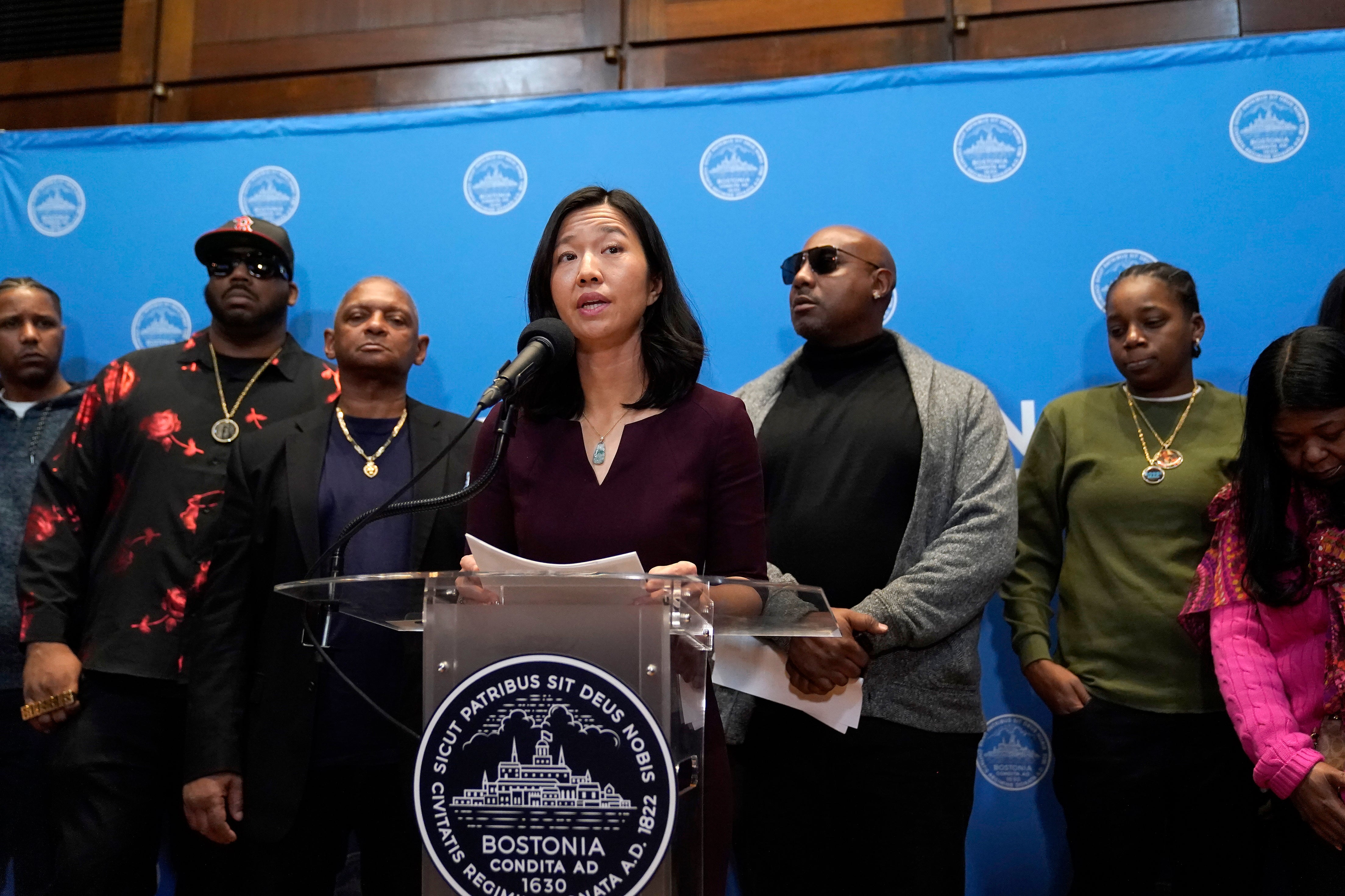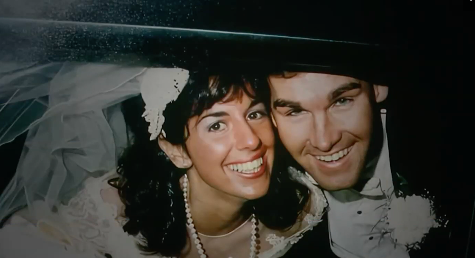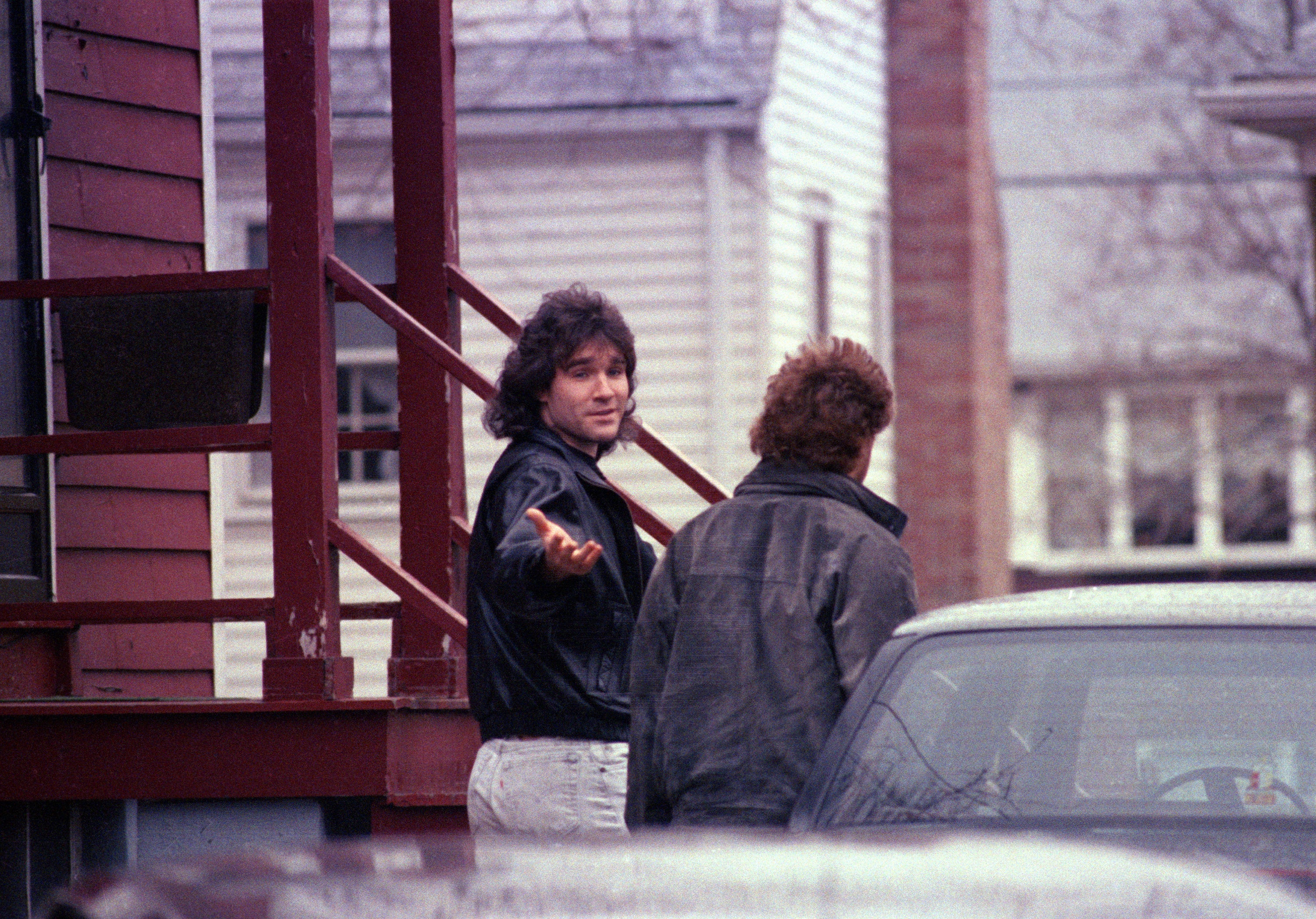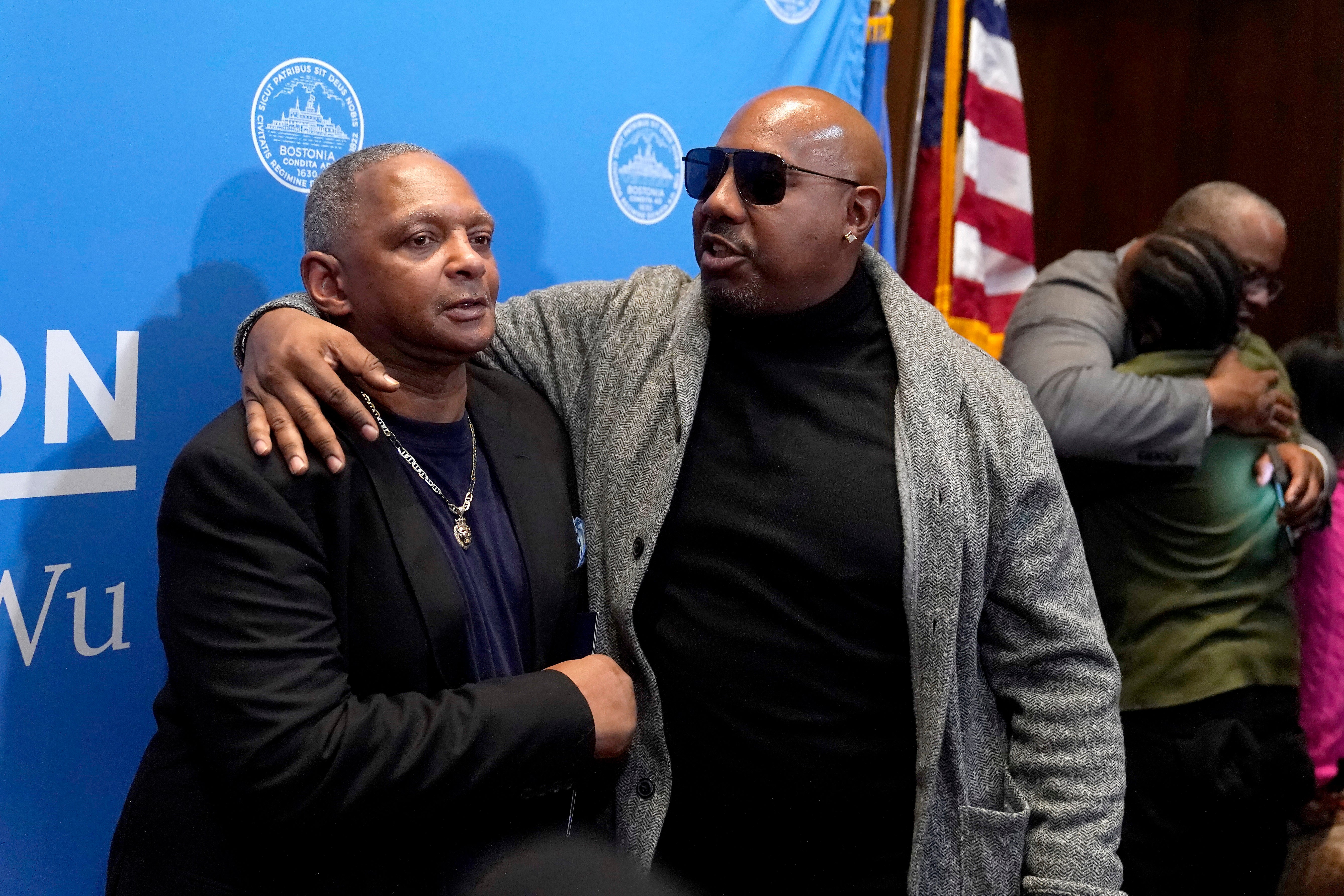Boston mayor apologises to Black men falsely accused of high-profile 1989 murder
Accusation caused pain for wrongly accused men and prompted Boston police launch crackdown targeting a history Black neighbourhood

It might not be as nationally well known as the Central Park 5 case of the same year, but the 1989 killing of Carol Stuart, and its long, racist aftermath, followed much the same dynamics: a lurid accusation of violence against a white woman painting people of colour as threats; an aggressive police response; a decades-long fight to find the truth.
This week, Boston Mayor Michelle Wu formally apologised to Willie Bennett and Alan Swanson, Black men who were falsely accused of fatally shooting Stuart, an expecting mother, in October of 1989.
"I am so sorry for the pain that you have carried for so many years. What was done to you was unjust, unfair, racist and wrong,” Mayor Wu told assembled members of Bennett and Swanson’s families during a Monday press conference.
The case dominated headlines in the city, and Boston police ravaged the historically Black neighbourhood of Mission Hill looking for a killer, even when later evidence suggested in likelihood it was Stuart’s husband – who originally told police a Black man who was responsible for the killing.
Claims of a horrifying murder-carjacking
The saga began in October of 1989, when Charles Stuart told police that he and his pregnant wife Carol, 29, were attacked as they left a birthing class.
Stuart claimed Black man in a tracksuit forced them to drive to an empty area in Mission Hill, where he fatally shot Carol in the head and grazed Charles in the stomach.
The claims – in a deeply segregated city, amid the racist paranoia of the crack epidemic and the Tough on Crime era, barely a decade on from the violence of the 1970s desegregation busing crisis – found the ears of a Boston Police Department already primed to view Black people as suspects.

In the ensuing investigation into Carol’s death, police descended on Mission Hill, conducting widespread sweeps often targeting young Black men with aggressive tactics.
At its height, officers were doing more than 150 “stop and frisk”-style searches a day, tactics that have since been declared unconstitutional in other cities like New York for their disproportionate targeting of people of colour.
Police first arrested Mr Swanson, who endured threats and harassment in jail, before police ruled him out. The BPD then settled on Mr Bennett as a suspect, and drew in part from the testimony of Derack Jackson, a teen who later said he’d been coerced into giving false testimony.

Both men, whose names were plastered over the city’s headlines, maintained their innocence.
“If you knew and loved a black man in Boston, you feared for his life. There was no evidence that a black man had committed this crime, but it didn’t matter,” Ms Wu said during the press conference. “Everyone closed their eyes to the truth because the lie felt familiar.”
Boston police commissioner Michael Cox, who spoke alongside Mayor Wu, apologised as well, and said he lamented the department’s "the poor investigation, overzealous behavior and, more likely, unconstitutional behaviour."
The media hype machine revs up
Though authorities have now apologised, at the time, the Black men’s names were tied to the supposed killing of a successful young, white tax attorney and her baby, ostensibly shattering the family dubbed the “Camelot couple” in the local press.
The investigation was round-the-clock news, and inspired everything from a 1990 made-for-TV movie to a 1991 rap song from Marky Mark and the Funky Bunch.
The case falls apart
Black men have long faced violence and persecution for crimes against white women based on spurious allegations, and the Carol Stuart case was no different.

In 1990, Matthew Stuart said his brother Charles had actually shot and killed his wife, confessing to helping hide the gun used in the shooting.
Charles died by suicide before any arrests were made based on the new information.
Later information suggested Charles orchestrated the phony robbery to collect on a life insurance policy.
A long journey of healing
A likely suspect may have been identified, but the damage was already done to the families of Mr Swanson, Mr Bennet, and the numerous other Black men caught up in the police dragnet in 1989.
The Bennett family later sued the Boston Police Department for civil rights violations and allegedly coercing a witness. The department settled for $12,500 in 1995.
For many in the city’s Black community, the 1989 scandal remains a source of pain.

“For a lot of us, that wound never closed,” former Boston City Council member Tito Jackson told the filmmakers of HBO’s recent docuseries on the killing, Murder in Boston. “And in order to heal a wound that’s been open for that long, you have to do the process of disinfection.”
Joey Bennett, Willie Bennett’s nephew, said during the press conference with the mayor he accepted the city’s apology.
"In accepting this apology I wish to emphasize the importance of strength, resiliency, empathy and growth – it’s through these principles that we change the narrative so the world can be informed of what transpired 34 years ago and begin the process of healing from our trauma," he said.
